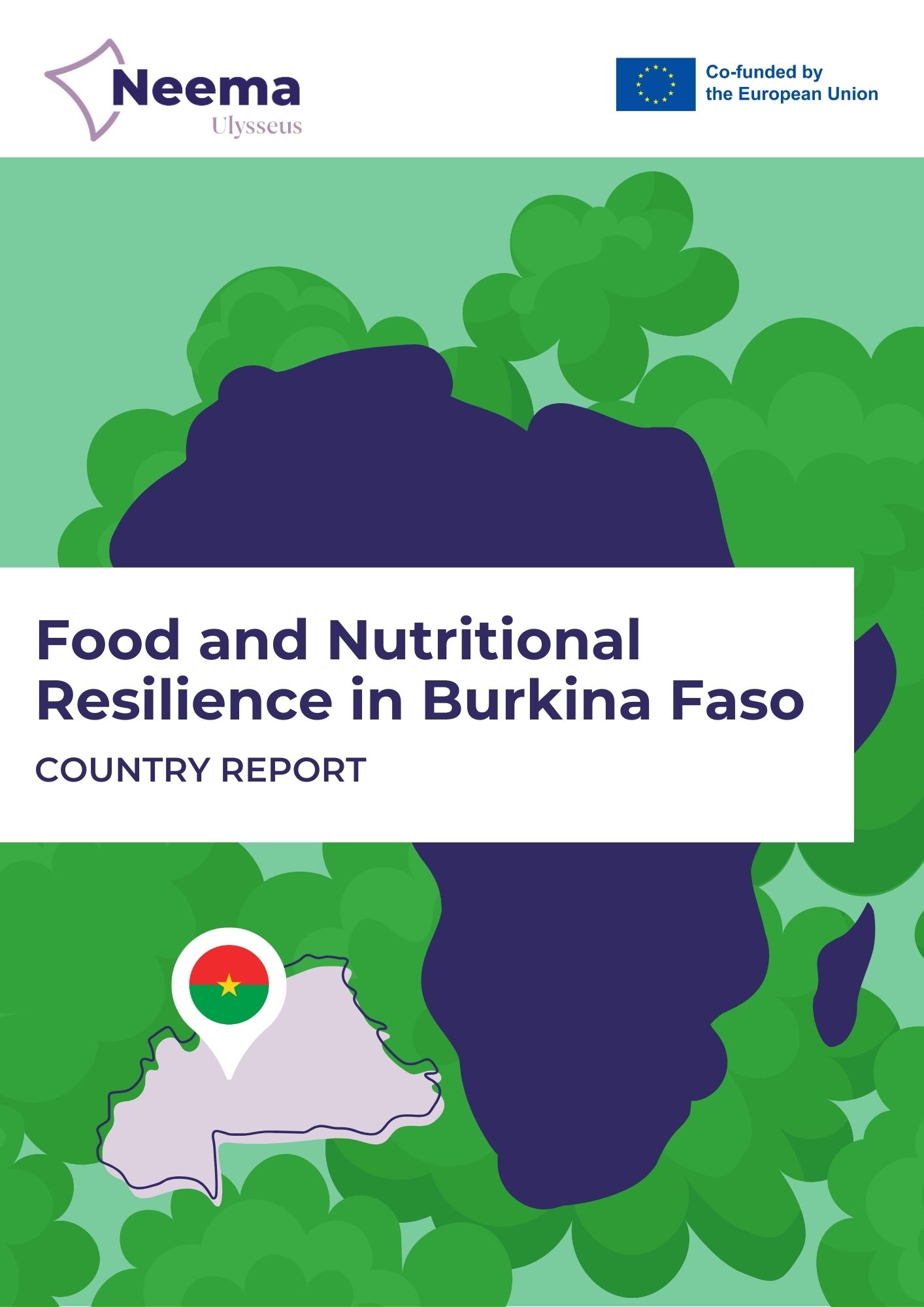NEEMA Food and Nutritional Resilience in Burkina Faso
Food and Nutritional Resilience in Burkina Faso delves into the vital issue of food and nutritional resilience in Burkina Faso, a country facing significant challenges in food security and climate change adaptation. The study aims to provide an analytical overview of the current legal and institutional framework, governance structures, and strategies in place to foster resilience in the country’s food and nutrition systems. Through extensive research and consultations with key stakeholders, this study presents actionable insights and recommendations to strengthen Burkina Faso’s capacity to achieve sustainable food security.

Food and Nutritional Resilience in Burkina Faso is part of the deliverables of the project NEEMA, Capacity Building in Higher Education through the development of a Food and Nutritional Resilience curricula adapted to the European Green Deal, Farm to Fork Strategy and to the needs of West Africa. NEEMA is funded through the ERASMUS EDU 2023 CBHE STRAND 2 call of the ERASMUS+ program by the European Education and Culture Executive Agency (EACEA) of the European Commission.
The main objective of the project is to adapt these frameworks to the specific conditions of the Sahel and West Africa, focusing on mitigating the negative impacts on food and nutritional security, especially for the vulnerable populations in the region. NEEMA seeks to strengthen the participation of higher education institutions in West Africa to improve their capacities in food and nutritional resilience, allowing better adaptation to the challenges posed by the EU Farm to Fork Strategy and its impact on the region.
Food and Nutritional Resilience in Burkina Faso delves into the vital issue of food and nutritional resilience in Burkina Faso, a country facing significant challenges in food security and climate change adaptation. The study aims to provide an analytical overview of the current legal and institutional framework, governance structures, and strategies in place to foster resilience in the country’s food and nutrition systems. Through extensive research and consultations with key stakeholders, this study presents actionable insights and recommendations to strengthen Burkina Faso’s capacity to achieve sustainable food security.
Key areas of focus include:
Analysis of the Legal and Institutional Framework: The study assesses the existing policies and legal measures shaping food and nutritional resilience, evaluating how effectively they are implemented and where they fall short.
Governance Structures: An overview of the governance mechanisms responsible for food and nutrition resilience, highlighting the roles of various stakeholders, including governmental bodies, municipalities, and community organizations.
SWOT Analysis: The study identifies the strengths, weaknesses, opportunities, and threats (SWOT) in current food and nutrition policies, providing a detailed understanding of the country’s resilience landscape.
Resilience Assessment: By examining the national capacity to cope with food security threats, particularly climate change, the study evaluates the effectiveness of existing strategies and highlights gaps in the system.
Practical Recommendations: To ensure long-term resilience, the study offers actionable recommendations, such as improving agricultural practices, strengthening policy implementation, securing land and water resources, and enhancing market access for smallholders.
One of the central questions the study addresses is the role municipalities and community organizations (associations, cooperatives, etc.) play in supporting smallholder farmers. The goal is to explore how these institutions can facilitate sustainable agricultural production systems that enhance food security while being resilient to climate change.
The study follows a rigorous methodological approach involving both documentary research and individual interviews:
- Documentary Research: The team reviewed a vast array of documents, including national policies, laws, reports, and strategies related to agriculture, food, and nutrition. This analysis provided a foundational understanding of Burkina Faso’s food and nutritional resilience framework.
- Individual Interviews: Experts from government ministries, agricultural researchers, farmers’ organizations, civil society groups, and international bodies were interviewed to gain a deeper perspective on the strengths and challenges in the country’s resilience efforts.
By addressing critical gaps in the current system and building on existing strengths, this study outlines a path forward for Burkina Faso to achieve sustainable food and nutrition resilience. The findings and recommendations will be essential for policymakers, development partners, and local organizations working toward a future where food security is a reality for all.
Read the full study to explore the complete set of recommendations and detailed analyses.






